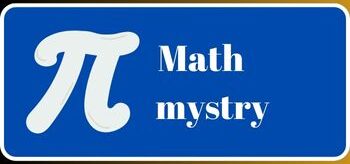Currently Empty: $0.00
- Description
- FAQ
- Announcement
- Reviews
Complex analysis is a mathematical field focused on the study of complex numbers and functions involving complex variables. It examines the properties and behaviors of functions defined on the complex plane, which encompasses both real and imaginary parts.
A key element of complex analysis is the exploration of analytic functions, which are differentiable in the vicinity of every point in their domain. This differentiability yields a range of powerful results, including the Cauchy-Riemann equations, Cauchy’s integral theorem, and the residue theorem, all of which have important implications in both theoretical and practical contexts.
The scope of complex analysis extends across various disciplines, including engineering, physics, and applied mathematics. It is especially significant in areas like fluid dynamics, electrical engineering, and quantum mechanics, where complex functions are used to model and address real-world problems. By deepening our understanding of complex function behavior, this field equips researchers and professionals with essential tools for tackling intricate challenges.
What Will I Learn?
In a complex analysis course, you will explore the following essential topics:
- Basics of Complex Numbers: Gain an understanding of complex numbers, including their properties and operations such as addition, subtraction, multiplication, and division.
- Analytic Functions: Delve into the concept of analytic functions, focusing on their differentiability and the Cauchy-Riemann equations that define them.
- Complex Integration: Learn methods for evaluating integrals of complex functions, including Cauchy’s integral theorem and Cauchy’s integral formula.
- Series Representations: Study power series and Laurent series, examining concepts like convergence and how these series can represent complex functions.
- Residue Theory: Discover how to compute residues and apply the residue theorem for evaluating integrals, particularly around singularities.
- Conformal Mappings: Explore transformations that preserve angles and their practical applications in solving problems in fields like physics and engineering.
- Applications of Complex Analysis: Understand the relevance of complex analysis in various disciplines, including fluid dynamics, electrical engineering, and quantum mechanics.
- Analytic Continuation: Learn about the principle of analytic continuation and its importance in extending the domains of complex functions.
By the end of the course, you will have a solid grasp of complex analysis and its applications, providing you with valuable tools for tackling complex mathematical challenges.
Targeted Audience
The intended audience for a complex analysis course includes:
Undergraduate Students: Those studying mathematics, physics, engineering, or computer science who require a fundamental understanding of complex analysis.
Graduate Students: Individuals aiming to expand their knowledge of complex analysis for advanced studies and research in mathematics or related fields.
Researchers: Academics and professionals involved in mathematical research looking to apply techniques from complex analysis in their work.
Engineers: Practicing engineers, especially in areas like electrical, mechanical, and civil engineering, who need complex analysis for modeling and problem-solving tasks.
Data Scientists: Professionals in data science and analytics interested in using complex analysis in their quantitative research.
Mathematics Educators: Teachers and instructors seeking to enhance their knowledge of complex analysis to effectively convey these concepts to students.
This course is designed for anyone eager to gain a comprehensive understanding of complex analysis and its applications across various fields.
What is an LMS (Learning Management System)?
A Learning Management System (LMS) is a software application that facilitates the administration, documentation, tracking, and delivery of educational courses and training programs. It provides a centralized platform for educators or organizations to manage and deliver content, assess learner progress, and facilitate communication.
What are the key features of a Learning Management System?
Common features of an LMS include content management, user management, assessment tools, reporting and analytics, communication tools (such as forums or messaging), and integration capabilities with other software systems. These features collectively support efficient and organized online learning experiences.
How can an LMS benefit educational institutions or businesses?
LMS streamlines training and educational processes, allowing institutions and businesses to deliver consistent content, assess learner performance, and monitor progress. It facilitates remote learning, personalized learning paths, and often reduces administrative overhead, making it an essential tool for scalability and efficiency.
What is the role of an LMS in employee training and development?
In the corporate setting, an LMS plays a crucial role in employee training and development. It enables organizations to create, deliver, and track training programs, ensuring employees have access to relevant resources. LMS also supports compliance training, skill development, and ongoing learning initiatives.
1. Feature Alert!
Explore Our Latest Additions – Unleash Enhanced Functionality Today
2. Maintenance Notice
Scheduled Downtime on [Date]. Thanks for Your Patience.
3. Upcoming Event!
Join Us for [Event Name]. Save the Date and Get Ready for an Exciting Experience!
Stars 5
1
Stars 4
0
Stars 3
0
Stars 2
0
Stars 1
0



